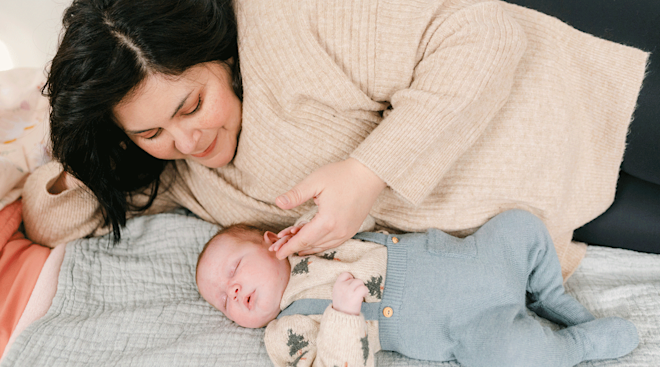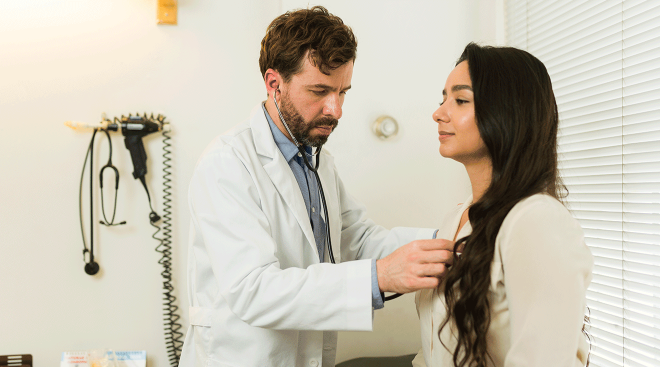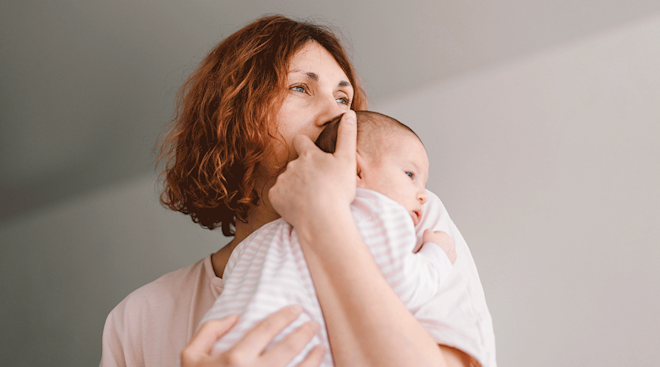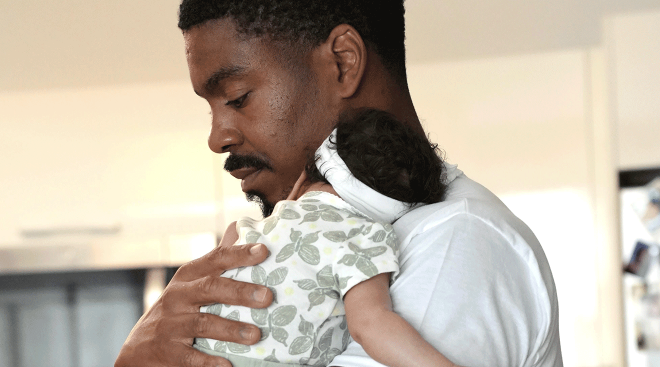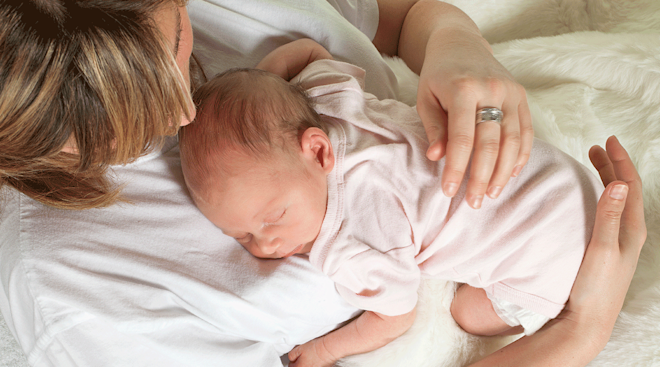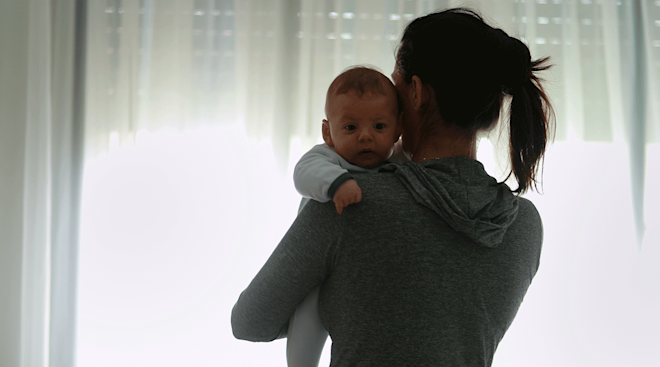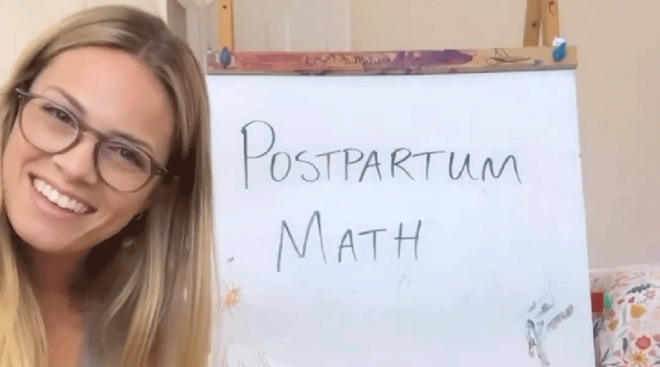We Need to Treat Dads for Postpartum Depression Too, Study Says
Dads can experience postnatal depression too, and it’s linked to emotional problems for their daughters later in life, a new study suggests.
The study was published in JAMA Psychiatry and found 1 in 20 new fathers suffered from depression in the weeks after their child was born. The research was based off of more than 3,000 families in Bristol in the UK, and found a link between postpartum depression (PPD) in men and depression in their daughters during their teenage years.
In fact, girls whose fathers experienced depression were at a greater risk for the condition when they reached 18 years old. Researchers say the “small but significant” increased risk only applied to daughters, not sons.
The study’s researchers attribute a few different scenarios for the “handing on” effect. For one, PPD in dads is usually linked to an increased level of depression in moms. Meaning, higher levels of stress and anxiety disrupts family life for everyone at home. Another reason may be because having one or both parents who suffer from depression may affect the way parents interact with their kids. That said, it’s unclear why girls are more affected than boys. The study’s authors suggest it may be due to the specific aspects of father-daughter relationships growing up.
The study raises some interesting points, but most importantly calls attention to PPD in dads and one of the many reasons why we need to screen all parents for the condition.
Recently, the AAP published new guidelines for pediatricians to use when it comes to screening and treating PPD in moms and dads. It points out that up to 25 percent of dads show signs of depression in the first year of parenting, and it increases to 50 percent when the mother experiences PPD too.
“Whilst many children will not be affected by parental depression in this way, the findings of this study highlight the importance of providing appropriate help to fathers, as well as mothers, who may experience depression,” says co-author Paul Ramchandani.
Please note: The Bump and the materials and information it contains are not intended to, and do not constitute, medical or other health advice or diagnosis and should not be used as such. You should always consult with a qualified physician or health professional about your specific circumstances.
Navigate forward to interact with the calendar and select a date. Press the question mark key to get the keyboard shortcuts for changing dates.

































